Filter by
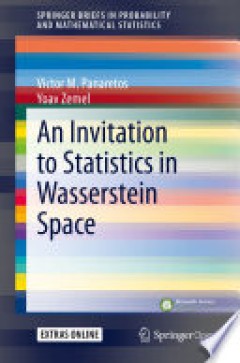
An invitation to statistics in Wasserstein space
This open access book presents the key aspects of statistics in Wasserstein spaces, i.e. statistics in the space of probability measures when endowed with the geometry of optimal transportation. Further to reviewing state-of-the-art aspects, it also provides an accessible introduction to the fundamentals of this current topic, as well as an overview that will serve as an invitation and catalyst…
- Edition
- -
- ISBN/ISSN
- 9783030384388
- Collation
- XIII, 147 p
- Series Title
- -
- Call Number
- 519.5 VIC a
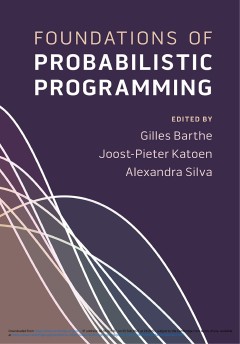
Foundations of probabilistic programming
What does a probabilistic program actually compute? How can one formally reason about such probabilistic programs? This valuable guide covers such elementary questions and more. It provides a state-of-the-art overview of the theoretical underpinnings of modern probabilistic programming and their applications in machine learning, security, and other domains, at a level suitable for graduate stud…
- Edition
- -
- ISBN/ISSN
- 9781108770750
- Collation
- xiv, 568p. : ill.
- Series Title
- -
- Call Number
- 001.642 FOU f
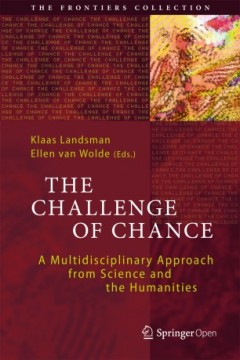
The challenge of chance : a multidisciplinary approach from science and the h…
This book presents a multidisciplinary perspective on chance, with contributions from distinguished researchers in the areas of biology, cognitive neuroscience, economics, genetics, general history, law, linguistics, logic, mathematical physics, statistics, theology and philosophy. The individual chapters are bound together by a general introduction followed by an opening chapter that surveys 2…
- Edition
- -
- ISBN/ISSN
- 9783319263007
- Collation
- vii, 276p. : ill.
- Series Title
- -
- Call Number
- 123.3 KLA t
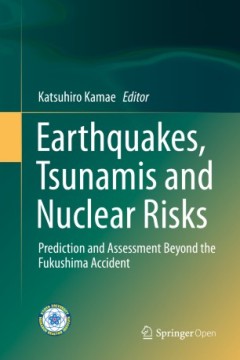
Earthquakes, tsunamis and nuclear risks : prediction and assessment beyond th…
This book covers seismic probabilistic risk assessment (S-PRA) and related studies which have become more important to increase the safety of nuclear facilities against earthquakes and tsunamis in the face of the many uncertainties after the Fukushima accident. The topics are (1) Active faults and active tectonics important for seismic hazard assessment of nuclear facilities,(2) Seismic source …
- Edition
- -
- ISBN/ISSN
- 9784431558224
- Collation
- xii, 177p. : ill.
- Series Title
- -
- Call Number
- 621.4835 EAR e
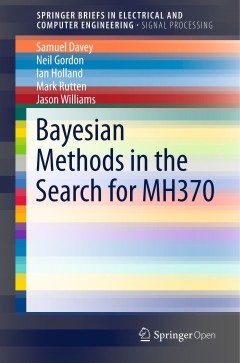
Bayesian methods in the search for MH370
This book demonstrates how nonlinear/non-Gaussian Bayesian time series estimation methods were used to produce a probability distribution of potential MH370 flight paths. It provides details of how the probabilistic models of aircraft flight dynamics, satellite communication system measurements, environmental effects and radar data were constructed and calibrated. The probability distribution w…
- Edition
- -
- ISBN/ISSN
- 9789811003790
- Collation
- xvi, 114p. : ill.
- Series Title
- -
- Call Number
- 363.12465 BAY b
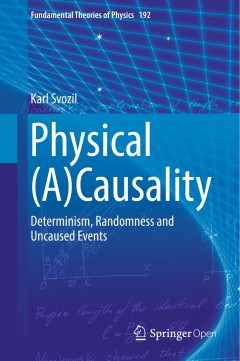
Physical (A)Causality : determinism, randomness and uncaused events
This book addresses the physical phenomenon of events that seem to occur spontaneously and without any known cause. These are to be contrasted with events that happen in a (pre-)determined, predictable, lawful, and causal way. All our knowledge is based on self-reflexive theorizing, as well as on operational means of empirical perception. Some of the questions that arise are the following: a…
- Edition
- -
- ISBN/ISSN
- 9783319708157
- Collation
- xiv, 219p. : ill.
- Series Title
- -
- Call Number
- 530.01 SVO p
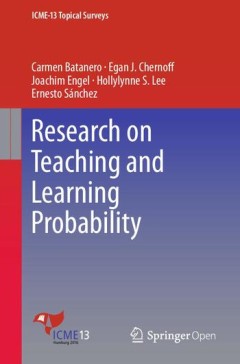
Research on teaching and learning probability
This book summarizes the vast amount of research related to teaching and learning probability that has been conducted for more than 50 years in a variety of disciplines. It begins with a synthesis of the most important probability interpretations throughout history: intuitive, classical, frequentist, subjective, logical propensity and axiomatic views. It discusses their possible applications, p…
- Edition
- -
- ISBN/ISSN
- 9783319316253
- Collation
- -
- Series Title
- -
- Call Number
- 519.2071 BAT r
 Computer Science, Information & General Works
Computer Science, Information & General Works  Philosophy & Psychology
Philosophy & Psychology  Religion
Religion  Social Sciences
Social Sciences  Language
Language  Pure Science
Pure Science  Applied Sciences
Applied Sciences  Art & Recreation
Art & Recreation  Literature
Literature  History & Geography
History & Geography